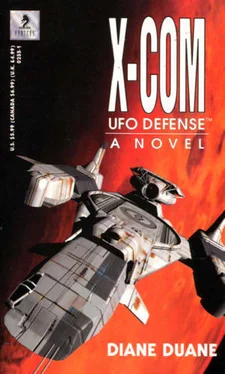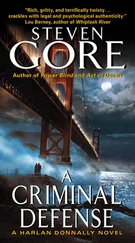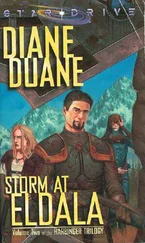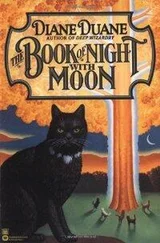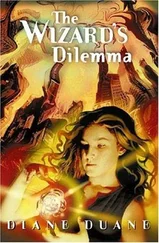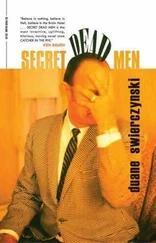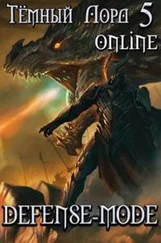Jonelle kept her feelings out of her face. “I’ve heard they do that kind of thing, yes….”
“So.” Ueli looked grim. “Why they come here to us, now, I don’t know. It wasn’t like this last year. We thought all that trouble that people were having, terror attacks, we thought all that kind of thing was for the cities, that it would pass us by. History has generally done that,” he said, and glanced up with a wry look as the third schnapps appeared. “That’s why so many people here still speak Romansh, the old language. Conquerors might come and go, but these high valleys were too much trouble to send troops to. Tax collectors, yes.” The wry look went ironic. “One prince might lay claim to your valley one year, another one the next, a bishop the year after. You would pay the taxes and not care too much who you paid them to. Eventually the conquerors went off and left us to ourselves, and we gladly stayed up here, out of the way, and let the world pass us by But this,” he said, downing the third glass, “will not pass us by, I think.”
Jonelle shook her head slowly. “As I see it,” she said, “you’re right. They mean to take the whole planet, if they can. And isolated valleys are not isolated, when you can look right down into them from space.”
“Well,” Ueli said. “You are a UN neutral observer facility, you say. Can you do nothing about this?”
Jonelle opened her mouth to say Sorry, I can’t help, and then she shut it again. All morning, she had been saying that about things regarding which it was, alas, true. But this was a different case.
“We have,” she said carefully, “some people who are supposed to be expert in these matters. I can send for one or two of them, if you request it. What exactly would you be asking that they do?”
“It’s not just for me,” Ueli said. “But I would certainly like to spare anyone else the kind of loss I’ve just suffered. We don’t like to complain, as a rule, but if there are more butcheries like this one, many people in these parts, those who don’t work in the tourist sector, will suffer badly in the next year or two. If it could be stopped, that would be a good thing. Even if we could find out where the cows have gone that have been stolen, whether they are dead or alive….”
Probably dead, Jonelle thought, for she knew all too well what happened to cattle that the aliens kidnapped whole. Poor Ueli! But she nodded. “Certainly,” she said, “the organization can send some people to investigate. They would need to talk to anyone who saw anything strange. We might need some language help, Ueli. The investigators wouldn’t all be German-speaking.”
“There are certainly people here who would help,” Ueli said. “Jonelle, when could they come?”
“If I can get down to the office and make some phone calls,” she said, “possibly even today.”
Ueli nodded. “Let us start, then.”
Jonelle left Ueli at the bar and went back to her office. There she spent about two hours on the phone and on comms. So un-covert an operation had to be cleared through her superiors, and it didn’t go through easily, or without considerable opposition. There were some members of Senior Regional Command who felt that no civilians should have anything whatsoever to do with X-COM operation, that there were too many possible leaks from civilians to those who might be giving information to the aliens. Others, though, were more willing to listen to reason, and Jonelle knew where they were, and who. Once matters were settled with them, she went back to the bar and found Ueli there—surprisingly, not much the worse for wear, despite what she suspected were an appalling number of schnappses downed while she was gone. “We’ll start in the morning,” she said. “They’ll send over three or four people from Geneva.” “They” was she, of course, and the people would not be coming from Geneva, but from Irhil M’Goun “They’ll need to talk to everyone who lost a cow or has had a mutilation or abduction recently.”
“All right,” Ueli said. “But what can they do?” Jonelle sat and looked at him over the glass of white wine that she had finally permitted herself. “In all honesty, I don’t know. They can try to establish a pattern, they can try to keep it from happening again elsewhere, by notifying your government….” She trailed off. She suspected Ueli knew as well as she did that the government could do precious little about a threat that dove down on it from space.
“But it’s got to be better than nothing,” she said.
“You’re right, of course,” said Ueli. But he didn’t sound terribly convinced…and Jonelle couldn’t blame him.
* * *
So it was the next morning that four X-COM people, with proper “UN” credentials in place, turned up in Andermatt and began querying the locals. Jonelle told the investigators to leave no stone unturned, or at least to appear to leave no stone unturned. They went clear down the Urseren Valley, starting at the next town down, Hospental, and farther yet to Realp—to any of the major areas nearby where there was enough pastureland for people to bother keeping cows. One investigator stayed in Göschenen and worked her way up the Göschenertal, which was where many of the Andermatt cows spent the summer, there being a lot more green there than there was locally. Another went over the Oberalp Pass to little hamlets like Tschamut and Selva. To each of the investigators, Ueli sent along a local man or woman who could handle the Urnerdeutsch dialect that nearly everyone around there spoke, and who would serve as native guide and icebreaker. A lot of the people who lived in the area, especially those farthest upcountry, were intensely private, and not used to strangers. In fact, people from Andermatt tended to use a dialect word, waelisch, to describe people from Realp and Hospental. It meant “foreigner.”
The team met in Jonelle’s office in Andermatt that evening, with no obvious conclusions to show for its day’s work, though there were indications that the kidnapping and mutilation problem was much worse than Jonelle had thought. One of her people, Matt Jameson, a statistician, had spread one of the Swiss topographic maps out on the wall and was sticking pins into it.
“The red pins,” he said, “are mutilations. The yellow ones are cownappings. The orange ones are a combination of the two in the same incident. Here are the most local ones.” Matt pointed. “We have mutilations up by Göschenen, at Abfutt, Schwandi, Hochegg, the Gander-enalp, and Gurst. These aren’t sorted by time, by the way. I’ll be adding that later—probably flags on these pins. Up here, north of Göschenen, we had a cownapping in Riedboden, another one in Band. Then farther up the valley, in Standental, one in Standen, one in Hochberg, one at Hoerli, another one farther up by the rail tunnel at Heggbricken, and the farthest one north, by Gurtnellen.” Matt paused, checking the map against the sheaf of papers he was holding and paging through. “On the west side, around the Oberalp Pass, we had a mutilation at Carnihutt, a mutilation at Pardatsch di Vaccas—” He smiled grimly. “Apparently the name means ‘the place where the cows hang out’ in Romansh. Another one at Missas Grond, and a fourth at Uaul.” He turned a page of his notes over. “Apparently there are none too close to Disentis, the big town in the middle of the western side of the east-west valley—our mutilators seem pretty chary of being seen. All the mutilations have been in quite isolated areas, with peaks around them high enough to prevent anyone seeing them from any kind of distance.”
Jonelle nodded, and Matt turned back to the map. “Now, the cownappings have by and large been in areas a little less remote. One near the village of Medel, here—another at Caspausa, just on the other side of the Oberalp Pass. Another one just outside of Göschenen, which is surprising, and yet another at Vausa, which is nearly as large as Göschenen.
Читать дальше
